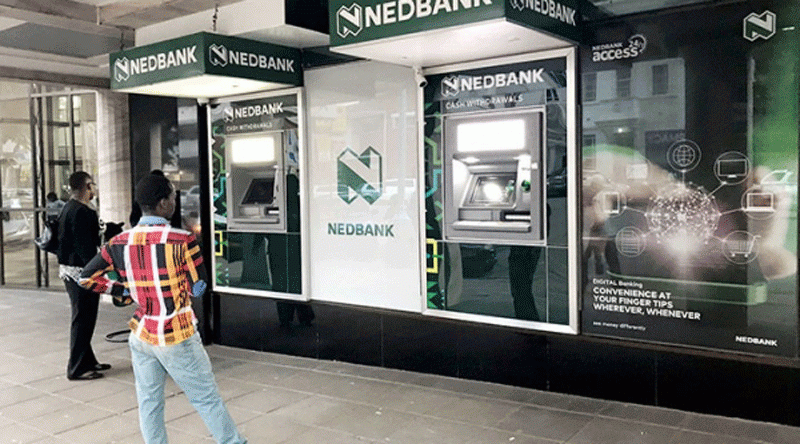
Corpserve recently issued a pre-listing statement for Nedbank Zimbabwean Depositary Receipts (ZDRs) as a silver lining to the clouded resolution of the suspension of Old Mutual Limited’s listing.
Old Mutual Limited finalised a restructuring exercise earlier this year which resulted in shareholders receiving 3,21 Nedbank shares for every 100 Old Mutual Limited shares held. Given that Old Mutual Limited is listed on multiple exchanges, this also applied to shareholders in London and Zimbabwe.
However, Old Mutual Limited investors in Zimbabwe have faced several challenges in trading the JSE-listed Nedbank shares, Corpserve’s intermediation notwithstanding. ZDRs therefore emerged as an apt solution for such investors.
The Nedbank ZDRs will be made up of the local Old Mutual Limited investors’ unbundled Nedbank shares and they will be listed on the Victoria Falls Stock Exchange.
We unpack the concept of depositary receipts and take a sneak peek into Nedbank’s fundamentals.
A depositary receipt is an instrument that gives investors the opportunity to hold equity listed in foreign markets without the need to move funds beyond borders. The US is among the countries with several depositary receipts.
There are 460 American Depositary Receipts (ADRs) and these offer investors exposure to equity instruments listed in 37 different countries. Zimbabwe, on the other hand, only has the Caledonia ZDRs which are listed on VFEX.
A depositary receipt’s key advantages include (i) exposure to foreign assets, (ii) low trading costs, and (iii) quick settlement. We have already highlighted the ability to invest in foreign companies through these instruments but further to that is the ability to earn foreign currency-denominated dividends that are paid by the underlying company as well as voting rights.
- Pension funds generate US$29 million
- Caledonia to restart key Bilboes operation
- Simbisa Brands mulls VFEX listing
- Simbisa Brands listing boost for VFEX
Keep Reading
The depositary receipts are also less expensive for investors because one does not need to open foreign bank and trading accounts in order to access these underlying stocks.
According to the pre-listing statement, the Nedbank ZDRs will reduce the settlement cycle by six days, and this is a testament of the convenience that comes with depositary receipts. However, we identify liquidity risk as a major disadvantage of the ZDRs. The Caledonia ZDRs are a good example of this, having traded only 1 603 shares since they listed on the VFEX almost a year ago. Whether investors should be setting aside funds to invest in Nedbank’s ZDRs or not requires us to delve into Nedbank Group’s fundamentals. The business is among South Africa’s largest financial services providers. Nedbank Group offers services in the banking, insurance, and wealth management, and its footprint extends to several African states including Zimbabwe. Given that 87% of its earnings come from operations in South Africa, we extend our analysis to include the broader financial services sector of South Africa. South Africa’s R6 trillion financial services sector is largely driven by banking operations which account for 36% of the sector’s total assets, followed by insurance operations at 21%. The banking sector is dominated by Standard Bank, FirstRand, Absa, and Nedbank which command a combined market share of 83%.
The sector’s long-term growth prospects are expected to remain steady despite current global risks, largely on the back of technology adoption and increased access to banking services. Banks such as Capitec, Tyme Bank, Discovery Bank, and Bank Zero have been some of the players who are leveraging off digitally driven business models to transform the sector’s modus operandi. This has been complemented by the significant increase in access to banking services. According to Finscope National Surveys, over 81% of the population above the age of 16 had a bank account in 2021, a notable increase from 63% in 2010. The quality assets of the banking sector, however, has been deteriorating since 2018. The value of non-performing loans (NPLs) as a percentage of total industry loans has increased from 2% in 2017 to 3,8% in 2021.
Nedbank, in particular, has made significant strides because of its digitalisation strategy. By June 2022, the group’s digitally active clients accounted for 37% of all its clients, up from 26% in June 2019. The value of transactions on its mobile application over the same period increased from R37 billion to R138 billion. However, the group’s NPLs as a percentage of total group loans of 4,6% was higher than the sector average 2021.
As far as the business’ financial performance is concerned, we note that it is slightly uncompetitive when compared to its peers Standard Bank Group, FirstRand, and Absa Group. Nedbank’s earnings growth over the last five years of -5,6% has been slower than its peers whose earnings contracted by an average of 3%. The group’s profitability - proxied by the 5Y Net Margin – of 19,7% is slightly ahead of its peer average of 18,7%. However, the entity’s efficiency, which is proxied by the 5Y average Return on Assets, is lower than its peers by 22%.
Nedbank’s valuation metrics also draw from the above observations. The group trades at a price-to-book ratio of 1,1x versus a peer average of 1,6x, as well as a normalised price-to-earnings ratio of 9,3x vs a peer average of 10,6x. We interpret Nedbank’s slight discount to its peers as the haircut appended by investors for the business’s relatively higher risk and its peers’ overall competitive edge over the group. From an objective perspective, the group trades in line with its net asset value which is the globally accepted norm for equities in the financial services sector and warrants our assertion that the business looks fairly valued. Assuming that the conversion of Nedbank’s share price to USD is done using the official rate when the ZDRs begin trading on VFEX, the share price of the ZDRs will likely hover around US$12m40 per unit in first trades.
Mtutu is a research analyst at Morgan & Co. — tafara@morganzim.com or +263 774 795 854.






